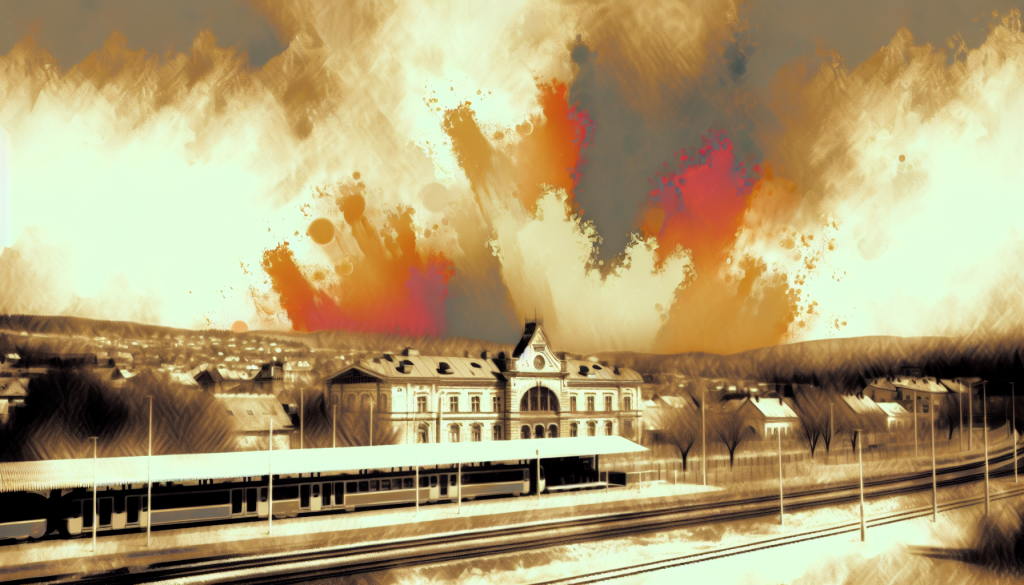Zelensky Condemns Russian ‘Terrorism’ as Drone Strikes Passenger Train
Ukrainian President Volodymyr Zelensky has publicly condemned a recent horrific drone strike carried out by Russia, targeting a passenger train in Ukraine. The attack, which occurred in the city of Shostka, located in the Sumy region, left dozens wounded and raised new alarms about the ongoing violence against civilians in the conflict. Zelensky shared shocking images of the aftermath on Telegram, displaying wrecked carriages aflame and others with shattered windows.
Casualties and Immediate Impact
The devastating strike injured numerous passengers and railway workers. According to regional governor Oleh Hryhorov, the train was on its way from Shostka to the capital, Kyiv, when it was hit. Reports suggest that around 30 individuals suffered injuries; fortunately, no immediate fatalities were reported. However, the injury toll highlights the severe risks civilians face amid the ongoing conflict.
Zelensky articulated his outrage by stating, “The Russians could not have been unaware that they were targeting civilians. This is terrorism, which the world has no right to ignore.” His words underline both the emotional and political weight of the event, calling for an urgent global response to the Russian strategies targeting innocent lives.
Rising Tensions and Military Strategy
The drone strike on the railway station in Shostka is part of a broader pattern of escalating airstrikes by Russia targeting Ukraine’s railway infrastructure. Reports indicate that these attacks have steadily increased over the past two months, as Moscow intensifies its efforts to undermine Ukrainian logistical capabilities. Railways, essential for transporting goods and people, have increasingly been seen as strategic military targets in this conflict.
Eyewitness Accounts and Urgent Responses
Eyewitness accounts from medics and rescuers on-site paint a chaotic picture of the immediate aftermath. Local officials have reported that medical teams were deployed swiftly to the scene, working tirelessly to assist the injured. As the local district administration put it, the situation requires urgent attention and response from both emergency services and governmental authorities.
International Reactions
International reactions to such acts of aggression have been varied, but there’s a growing consensus among Western leaders regarding the severe implications of Russia’s actions. Zelensky’s consistent calls for international support and condemnation reflect a broader narrative that underscores the need for accountability in the ongoing conflict. The world community is urged to take note of these atrocities and consider measures to hold the aggressors accountable.
The Broader Context of the Conflict
As the war in Ukraine stretches into its third year, strikes on civilian infrastructure have become emblematic of a conflict that increasingly challenges international norms and expectations regarding warfare. The deliberate targeting of civilian assets raises significant ethical and humanitarian questions that resonate beyond Ukrainian borders.
The ongoing hostilities not only destabilize the region but also prompt discussions among NATO allies on collective security measures. The ramifications of these attacks reverberate throughout Europe, fueling debates on military aid, political alliances, and the overall readiness of NATO to confront emerging threats.
In the face of such violence, Zelensky’s denunciation serves both as a rallying cry for Ukrainians and a plea for international solidarity. The complexities of the conflict, coupled with these recent attacks, demand a nuanced understanding of the humanitarian crises emerging within a wider geopolitical landscape.

